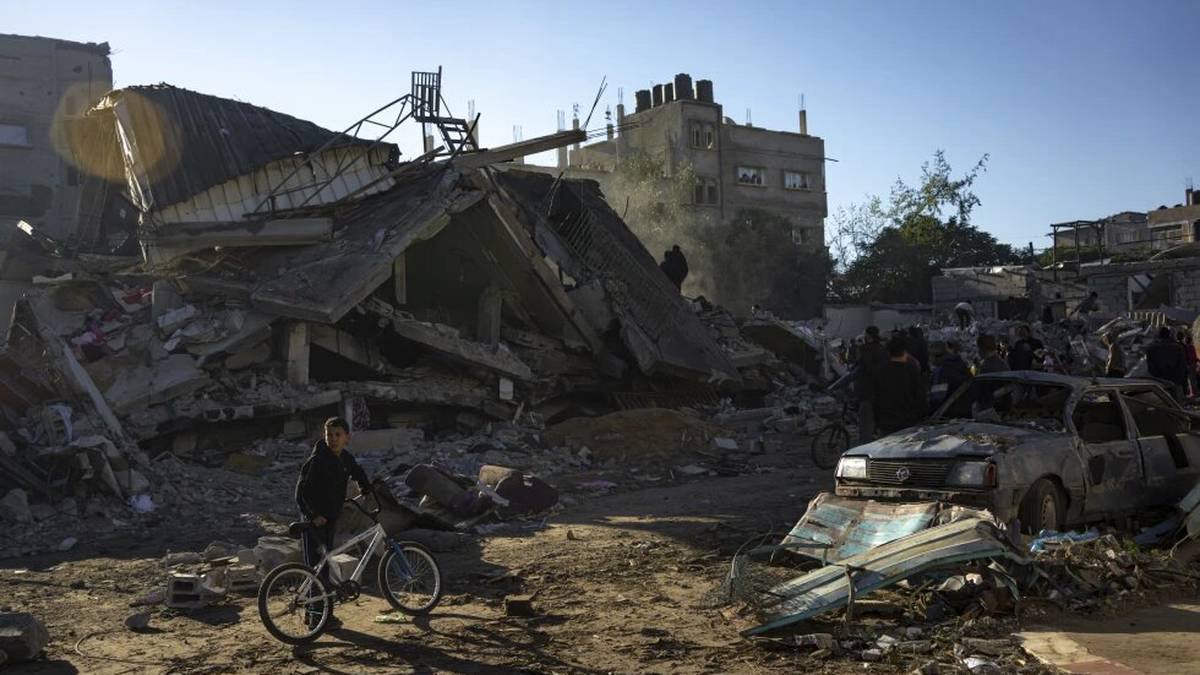Immigration New Zealand (INZ) has confirmed the number of applications received across temporary and residence class visa categories from Israeli nationals is five times higher than those from Palestinian nationals. And seven times more visas have been approved for Israeli nationals than for Palestinian nationals.
Te Ao News can reveal the exact number of visas issued by INZ after the atrocities by Hamas against Israelis began a new phase for the long conflict between Israel and Palestinians.
Since October 7, INZ has received 145 applications across temporary and residence class visa categories for Israeli nationals, of which 64 have been approved and 75 applications are under assessment.
This compares with 27 applications across both visa categories for Palestinian nationals, of which nine have been approved and 13 applications are still being assessed.
INZ noted the applications are from onshore and offshore applicants. Whether applicants were coming out of Gaza was as yet unknown, Minister of Immigration Erica Stanford said in Parliament on Wednesday.
Simon Sanders, acting chief operating officer of immigration, says: “New Zealand is deeply distressed by the escalating crisis and loss of human life in the Israel-Gaza conflict.
“The Government is continuing to monitor the situation closely, along with our partners. New Zealand is supporting the humanitarian efforts of the International Committee of the Red Cross and the World Food Programme to address the urgent humanitarian needs in Gaza.
“We understand the difficult situation this crisis is causing for many, and have great sympathy for those separated from their loved ones during this stressful time.”
Since the conflict between Israel and Gaza started, INZ says it has introduced processes to ensure consistency and priority allocation for any applications received from people living in those locations.
/cloudfront-ap-southeast-2.images.arcpublishing.com/nzme/7TFTVWDEZ5D6BK7AIZ2EZOLUZM.jpg)
The processes include all general visitor visa applications from Palestinian and Israeli nationals being processed in the same office. A mailbox has also been set up for applicantsseeking support through the Ministry of Foreign Affairs and Trade (MFAT) to request prioritisation of applications.
Almost 20,000 people, mainly Palestinians, have been killed in the Gaza Strip in the past nine weeks, with 70 per cent of those killed women and children. A further 1.9 million people, more than 85 per cent of Gaza’s total population, have been displaced.
Sanders says immigration officials have been providing case-by-case advice and support to MFAT for New Zealand citizens and permanent residents attempting to leave Gaza and travel to New Zealand.
Te Ao News understands MFAT has assisted 20 individuals to leave Gaza and those individuals are New Zealand citizens, permanent residents, and family members (spouses or dependent children).
An MFAT spokesperson says: “Securing approvals for individuals to exit Gaza is a complex process, requiring approval from both Israel and Egypt and providing assurances to the Egyptian government that those we support will leave Egypt within 72 hours.”
Stanford said: “I have been assured by the Minister of Foreign Affairs that all New Zealand citizens and permanent residents who wanted to leave Gaza have now left and this was a priority for the new Government.”
Whether the Government will give a special category visa to Palestinians, as happened with Ukrainians fleeing conflict in 2022, has been discussed. Stanford says the situation with Ukraine was different because the previous Government was able to work with the United Nations High Commissioner for Refugees (UNHCR) and international partners to get refugees out.
Sanders says any decisions on changes to immigration policy settings would be a matter for the Government.
“Ukraine was a unique situation given the size, scale, and nature of the conflict, and the fact that the UNHCR was unable to refer people to New Zealand through our refugee quota, which meant there were no existing pathways for Ukrainian refugees,” he says.
“Afghanistan was also another situation where unique circumstances required a targeted approach as Afghan nationals were at risk of harm due to their work for the New Zealand Defence Force and other agencies in Afghanistan.”
The primary way New Zealand provides support for international refugee situations is through the refugee quota, with an annual limit of 1500 people per annum. Refugees are accepted through the quota system and are referred to INZ by the UNHCR. INZ also contributes to international peacekeeping and disarmament and to funding humanitarian aid through the United Nations and NGOs.
On December 13, the prime ministers of Australia, Canada, and New Zealand made a joint statement calling for a renewed pause in the conflict in Gaza and support for urgent international efforts towards a sustainable ceasefire.




 Weather: Canterbury hits 33C with muggy nights set to stay in Auckland, Christmas Day to get showers
Weather: Canterbury hits 33C with muggy nights set to stay in Auckland, Christmas Day to get showers